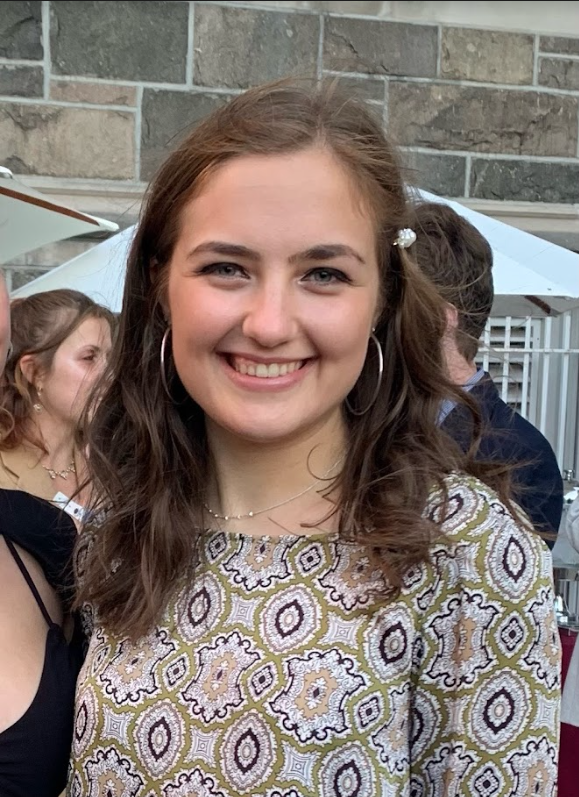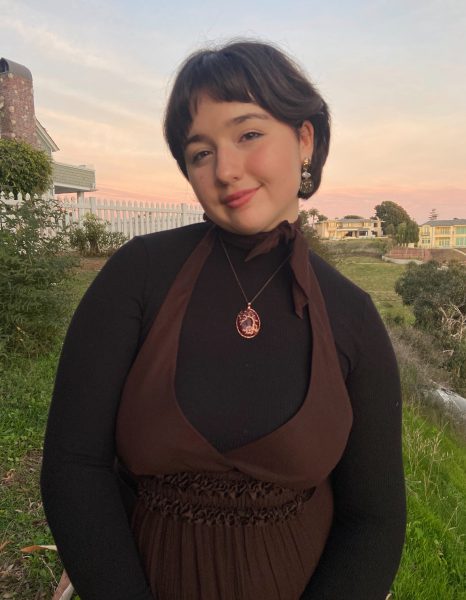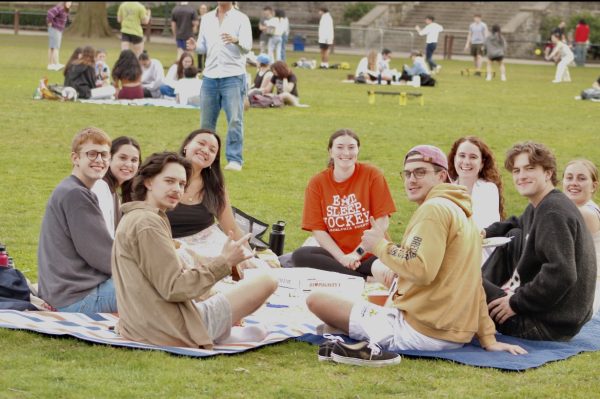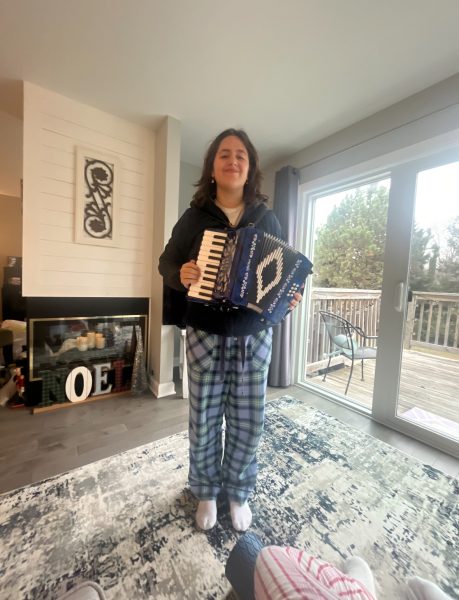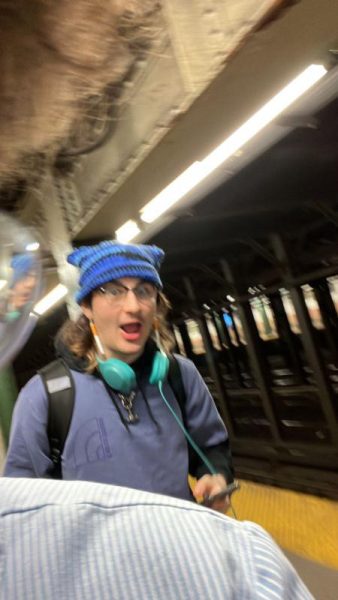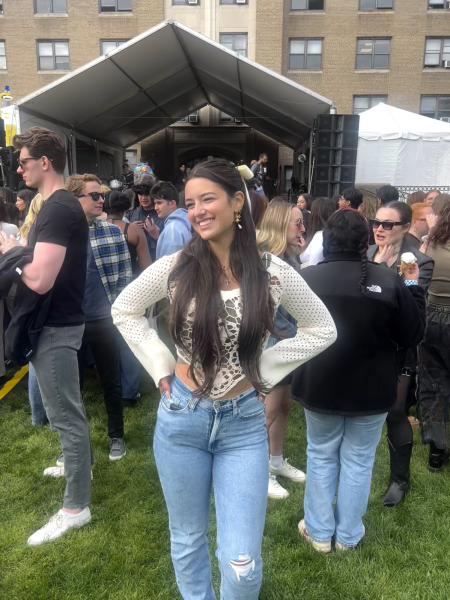Senior Pursues Environmental Research
Research can be a challenging yet rewarding part of any STEM student’s academic journey. This past spring, Catherine Froehlich, FCRH ’23, decided on a research topic that allows her to combine her areas of interest within the field of biology.
The objective of Froehlich’s research is to determine how pollution and urbanization im- pact soil microbial communities. The idea for this topic came to fruition with the help of her mentor.
“We were brainstorming different topics and I liked the idea of this one because I enjoy the ecology side of biology but also the molecular and genetics side, and so it’s kind of a combination of the two,” said Froehlich.
Regarding the fieldwork involved, Froehlich has chosen to investigate the soil microbes in three distinct categories of sites: urban, suburban and rural, or ex-urban. “We take soil samples from each of these types of locations and then we pull out the DNA, analyze it and send it off for sequencing,” Froehlich explained. Specifically, within each site she is collecting samples from riparian areas, which are located near a water source.
Froehlich described the purpose of this fieldwork as two-fold. “We’re trying to see if any pollution in the water has an effect on the soil microbes,” she said, “and also if it being an urban area affects the soil microbes.”
Though still in the early stages of her research, some of the field and lab work required for the project has already begun. “Over the summer we went to the Botanical Gardens and we collected soil samples from the Thain Family Forest,” said Froehlich. “Then we went into the lab and performed DNA extraction to get the DNA out of the soil.” She hopes to complete the majority of the fieldwork this fall, which entails visiting six additional sites including Van Cortlandt Park, the Calder Center and Fahnestock State Park.
Froehlich has yet to gather findings as she is waiting until all of the samples have been collected before sending them off for sequencing. She is also waiting to hear back about the research grant she applied for earlier this semester, which would provide extra funding for her project. In the meantime, Froehlich is hard at work on other aspects of her research venture. “We’re trying to test out our fieldwork techniques and make sure everything is going smoothly for all of our other sites that we plan to visit,” she said.
Froehlich admitted that it can be difficult finding the time to focus on her research. On top of having to handle the demanding course load of a STEM student, she is also the president of University Choir and the vice president and co-founder of Dance Co-op, Fordham’s all- inclusive dance group.
“I’m only taking three classes this semester, which has been a nice change from my 21-credit semesters in the past,” said Froehlich. “But I still feel like it’s a lot being a club leader of two different clubs because I’m not only in the club, but I also have to run it.”
Nonetheless, Froehlich remains optimistic in her endeavors. “Luckily,” she said, “my men- tor is very flexible and so I can basically conduct my research at whatever time works for me.” With that said, she is hoping to find the time to complete some more fieldwork in the near future.
If daunting coursework, frequent extracurriculars and a looming research project weren’t enough, Froehlich is also on track to graduate a semester early, forcing her to think about life after Fordham.
“I probably want to attend grad school and get another degree, but I don’t really know what I would want it to be in,” said Froehlich when discussing her plans after graduation. “So I’m kind of holding off and seeing if I can get a job in the field like a lab technician or just helping out with research in some way.”
In terms of which field she wants to specialize in, Froehlich is keeping her options open. “Two years ago I worked for the New York State Department of Health as a contact tracer and that was a cool experience, so I feel like public health could be in my future,” Froehlich said. “I also was considering something like genetic counseling,” she added, “which is when you help patients see their genetic risks for certain diseases.”
Whichever career path she chooses to pursue, Froehlich will surely approach it with the same determined attitude and strong work ethic that she applies to her research project and all other endeavors.
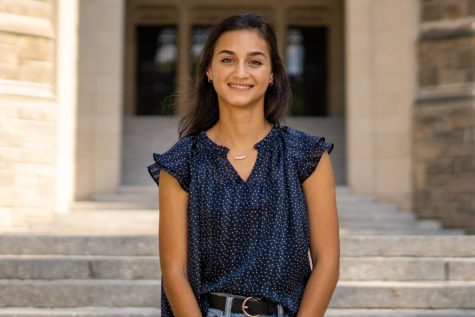
Pia Fischetti is a senior from New York majoring in new media and digital design. She began her journey with the Ram during her freshman year as a photographer....



































































































































































































